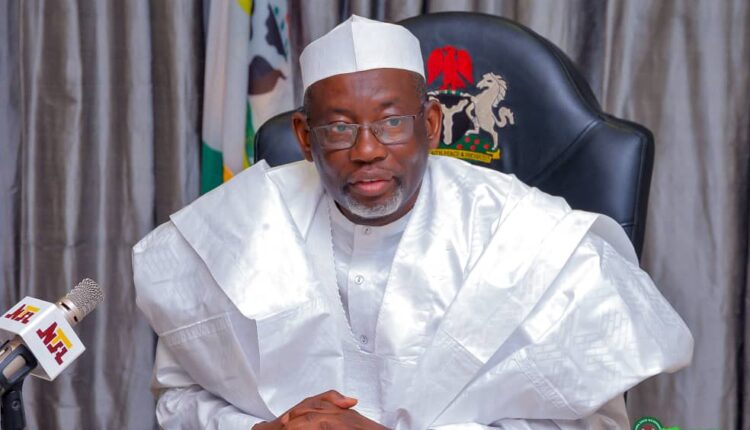Between Gov. Namadi, Gagarawa LG, Jigawa Council Chairmen and Empowerment Program in the State
By: Adamu Muhd Usman
The Executive Chairman of Gagarawa Local Government Area, Hon. Barr. Abubakar Idriss, has set a new standard for grassroots economic empowerment through the launch of the Gagarawa Mega Economic Empowerment Program, a bold and inclusive initiative that has directly touched the lives of hundreds of residents across the local government.
The program, spanning multiple sectors, provided tangible support to almost three thousand (3,000) beneficiaries. Cash empowerment included ₦200,000 to 200 people, ₦100,000 to another 200 people, and ₦50,000 to an additional 200 individuals to boost small-scale enterprises and self-reliance.
In addition, beneficiaries received bicycles for school children, grinding machines, vulcanizing equipment, photography tools, mobile phone repair kits, scholarships, and other empowerment items designed to stimulate local economic activity and reduce unemployment.
One of the most noteworthy aspects of the initiative is the enrolment of one thousand (1,000) Fulani nomadic children in school, with a sincere commitment to sponsor them. Additionally, one hundred (100) youths from less privileged backgrounds were selected for tertiary education sponsorship.
The program’s comprehensive design ensures that virtually every segment of society—including youth, women, the less privileged, artisans, and small business owners—benefits from one form of support or another. In a state where rural economic development remains a priority, the Gagarawa model stands out as a practical and replicable template for community-based growth.
During the flag-off ceremony, Governor Malam Umar Namadi (FCA) a.k.a Dan Modi commended Hon. Abubakar Idriss for his efforts and announced plans to present a bill to the State House of Assembly. The bill proposes a competition among Jigawa’s 27 local government areas, where the most innovative and impactful empowerment program would be recognized and awarded a trophy.
While laudable, a more transformative approach would be to institutionalize the Gagarawa model as a standard empowerment framework for all local governments in Jigawa State. Rather than focusing solely on competition, each local government should adopt and adapt the Gagarawa blueprint, customizing it to fit its economic capacity, social realities, demographics, and geographical conditions.
This decentralized and adaptive model ensures that every local government implements empowerment programs rooted in the actual needs of its people—whether through skills training, access to micro-credit, agricultural input support, or small business grants. Such an approach deepens inclusiveness while promoting accountability, innovation, and measurable impact at the grassroots level.
If institutionalized statewide, the model could reshape rural development in Jigawa, creating a ripple effect of productivity, entrepreneurship, and self-sufficiency. It aligns perfectly with Governor Namadi’s commitment to people-centered governance and economic empowerment.
By providing the necessary policy backing, technical guidance, and performance monitoring, the state government can turn the Gagarawa initiative into a flagship empowerment framework for all 27 local government areas, ensuring each contributes meaningfully to job creation, poverty reduction, and sustainable community development.
Jigawa of my dreams.
Adamu writes from Kafin-Hausa, Jigawa State.

